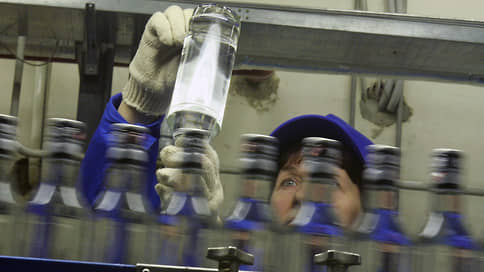Scientists appreciated the influence of genes on the occurrence of alcohol dependence

Russian scientists conducted a large -scale study of the genetic prerequisites of alcohol dependence. They analyzed the data of more than 40 thousand adult citizens and found in 95% the ADH1b Gene allele. Because of it, a person is able to drink more alcohol, which increases the risk of dependence. These data will help to develop “personalized approaches of the prevention and treatment of patients of different ethnic groups”, the authors of the study are sure. The narcologist agrees with the importance of scientific work, but emphasizes that genetic characteristics are far from the only factor in the development of dependence.
Genotek assessed the possible influence of genetic factors on the occurrence of alcohol dependence. The work was carried out jointly with the scientists of the NMIC of psychiatry and neurology. V. M. Bekhtereva, First St. Petersburg State Media Medical University named after Academician I.P. Pavlov, Institute of Translation Biomedicals of St. Petersburg State University, Higher School of Economics and Skolkovo Institute of Science and Technology. Scientists used the data of 41 thousand Genotek customers who surrendered a genetic test and were attributed to the Eastern Slavs – Russians, Ukrainians and Belarusians. All of them agreed to the use of their genetic profile in the study.
During the analysis, scientists concentrated on the sequences of the RS1229984 ADH1b gene – it determines how quickly the body turns alcohol into acetaldehyde, which causes unpleasant sensations. RS1229984 has two options – alleles T and C. In the first case, alcohol is processed faster and a person experiences unpleasant sensations after small portions. Usually, such people are less interested in drinking and they less often have alcohol dependence, so scientists call the allele T “protective”.
But the presence of a person in allele C allows you to drink more, which increases the risk of alcohol abuse. It was the allele C was discovered by almost 95% of the study participants.
“The data obtained open up new prospects for the development of personalized prophylaxis and treatment of alcohol dependence,” said Alexander Rakitko, director of Genotek science. “It is necessary to update the relevant clinical recommendations by adding an assessment of the individual risk of patients of different ethnic groups.” The results “give grounds for further research in the development of complex systems for assessing individual risk of developing alcohol dependence, including genomic, personal and clinical characteristics”, the co -author of scientific work, the head of the department of mental disorders of the NMIC of psychiatry and neurology V. M. Bekhtereva Alexander Kibitov.
Science had previously known about the influence of genes on the risk of developing alcohol dependence, recalls a molecular biologist, an employee of Moscow State University Sergey Kharitonov. However, the study of Russian scientists “remarkably with its format,” says the expert: it covers 41 thousand people and allows you to calculate the numerical correlations of the gene variant with the risks of the occurrence of a particular disease. “Alcohol dependence is controlled by a large set of genes, so the calculation of the contribution of specific of them, as well as the identification of their prevalence in individual populations, is a very useful work for epidemiology and medicine,” said Mr. Kharitonov. “I will assume that in some not very close future this discovery can be used for diagnostics, when people on medical examinations will show their genetic inclinations Dependencies. » However, he recalled that many factors, including the personal experience of a person, contribute to the development of alcoholism. Therefore, the influence of the allele with « can be successfully compensated. »
No person is born an alcoholic, emphasizes the psychiatrist, co -founder of the Rosa narcological clinic Oleg Parkhomenko.
According to him, in clinical practice, “acquired heredity”, that is, examples of alcohol consumption that a person has encountered in childhood. However, the “protective enzyme system” is also important, Mr. Parkhomenko emphasized: “Science has long been known that there are races that better“ dispose ”alcohol. And there have always been attempts to artificially synthesize these protective enzymes in the form of drugs. But so far there are no. The results of the study are half a step forward, but in clinical practice they do not give any prospects for building a remission of alcohol dependence. ”







